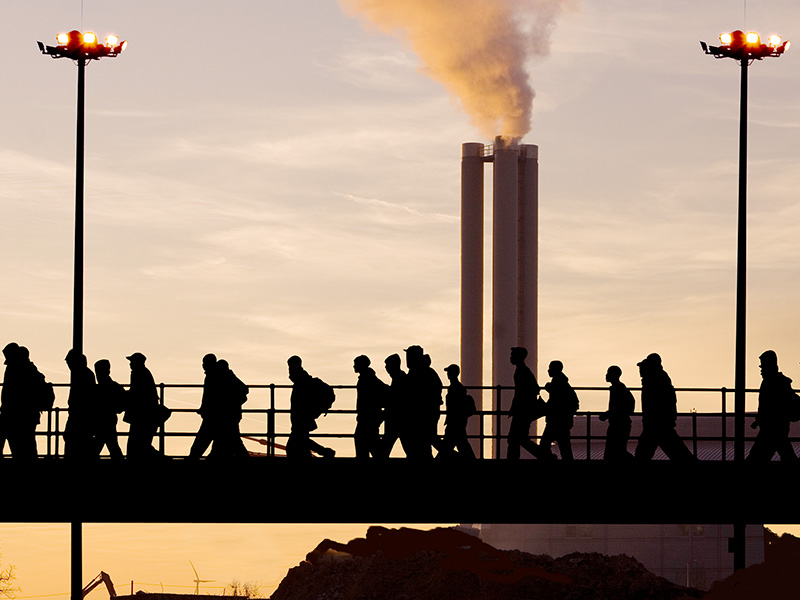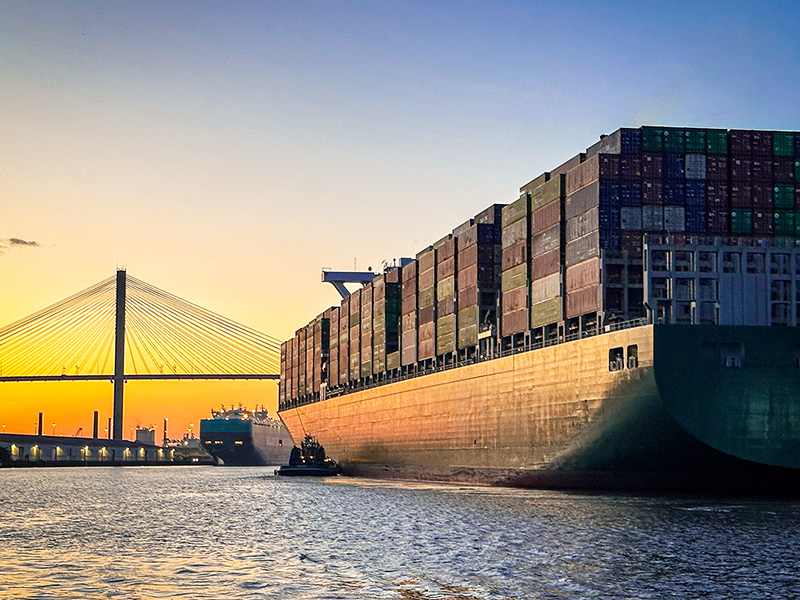
Photo by pawel.gaul on iStock
At the start of this year, I presented seven pivotal questions that would shape sustainable business in 2024.
- What impact could the 2024 global elections have on just and sustainable business, and what can companies do about it?
- Will the COP28 agreement mark a real transition?
- Are DEI commitments flagging?
- Can we ensure that emerging technology is developed responsibly and sustainably?
- Will new regulations turn sustainability into a compliance exercise?
- How is the role of the Chief Sustainability Officer (CSO) changing?
- How will business juggle so much interlocking change?
As we reach the midpoint of the year, I’ve reflected on how these questions interconnect, based on insights and observations from our discussions with companies and other influential actors around the world.
Companies are focusing more intently on what they know they can deliver with respect to existing goals.
After a flurry of new commitments in the first part of the 2020s, appetite for ambitious new goals is sharply limited right now. Indeed, high-profile companies in multiple sectors are not only focused on the delivery of existing goals but also on extending the time frame for implementing climate change pledges and other sustainability objectives. This reflects the messy realities of balancing ambition with a hard-headed assessment of delivery challenges. The ongoing tension between ambition and pragmatism can be seen amidst the current battle over the direction of the Science Based Targets Initiative.
The focus on new regulations is tamping down ambition, which is reshaping the role of the Chief Sustainability Officer–at least for now.
There is little doubt that new regulatory requirements are having a major impact on company ambition. Preparation and readiness for the new requirements of the Corporate Sustainability Reporting Directive (CSRD), the Corporate Sustainability Due Diligence Directive (CSDDD) and others, have soaked up a substantial amount of time and attention, as well as budget.
The question on the table is whether this is a one-time transition as companies build systems and competencies, or whether the shift—with a newfound emphasis on verification of quantifiable information and new accountability systems—is here to stay. Will the ESG Controller or the CSO steer sustainability? Will the necessary investments in compliance crowd out the need to have sufficient innovation and ambition?
Compliance orientation is transitory but will also have positive and lasting effects. The CSDDD for example, requires companies to assess and address negative impacts on both people and the environment and helps level the playing field for sustainability leaders. However, it is essential that leaders avoid adopting a compliance-only mindset; that innovation and ambition remain strong; that resources are not overwhelmingly dedicated to reporting, and that businesses transform to meet emerging sustainability challenges.
Political turbulence is influencing ambition and delivery.
2024 is the year of elections globally and so far the results have been as unsettled as expected. In the last two months we have seen a surge of the far right in France, followed a week later by a shocking comeback by the left; a landslide changing of the guard in the UK; the election of Mexico’s first female president; a surge of right-leaning parties in the European Parliament; the end of the ANC’s 30-year majority in South Africa, as well as the BJP’s majority in India. The events of the last three weeks in the US have shaken the political system as the upcoming election looms large this fall.
The lack of clear direction and questions about the political system’s stability and resilience create uncertainties that could impede long-term thinking and business planning, including those related to sustainability. Currently, companies do not see sufficient policy stability or certainty on core sustainability issues, and are acutely aware of the public anger and anxiety that is manifesting itself at the ballot box. The rise of nationalism and right-wing populism has targeted business action on diversity, sustainable investing and climate directly, especially in the United States. So far, businesses have chosen to stay quiet about election processes; whether that proves to be a good strategy is not yet clear.
The underlying realities that underpin the importance of just and sustainable business are stronger than ever, even if company actions appear more muted right now.
Amidst all this turbulence, the underlying facts facing business and the world remain powerful motivators for action. Climate science change impacts, diversifying and growing populations, economic uncertainty, and the case for investing in a sustainable future remain indifferent to election outcomes. Instead, questions over how much time has to be given to regulatory compliance, or dependencies in delivering on goals, such as the availability of clean energy to enable Scope 3 emissions reductions still stand. A rising generation shows no signs of reducing its demands to see a more fair and sustainable economy.
Almost 20 years after Al Gore’s seminal movie, there are more—and more powerful—inconvenient truths than ever before. Business leaders ignore or diminish them to our peril. No company ever complied its way to innovation. No company can stand by passively as political movements that erode democracy undermine the rule of law that business depends on to operate and thrive. And no company can ignore the need to develop a diverse and talented workforce and a climate-resilient business strategy.
The questions we posed at the start of the year remain very open. The multiple crosswinds affecting companies’ commitments to just and sustainable business are real. The compelling reasons why these commitments are so important, however, will outlast whatever twists and turns businesses face each year. Sustainable business has always been about looking to the future; that is even more true at a time when the present is turbulent.
The challenges are real. Nonetheless, a retreat into a compliance-focused mindset; undue caution in the face of uncertainties, and what seems to some as capitulation to political opposition serves no one. We believe that it is high time to renew a focus on ambition, delivery, and innovation. Standing still means falling behind, at a time when real progress is so badly needed.
If you’d like further information on BSR’s approach to advancing sustainability amid election-related uncertainty and to discuss what’s right for your organization, please don’t hesitate to reach out to us.
BSR’s latest sustainability insights and events straight to your inbox.
Topics
Let’s talk about how BSR can help you to transform your business and achieve your sustainability goals.








